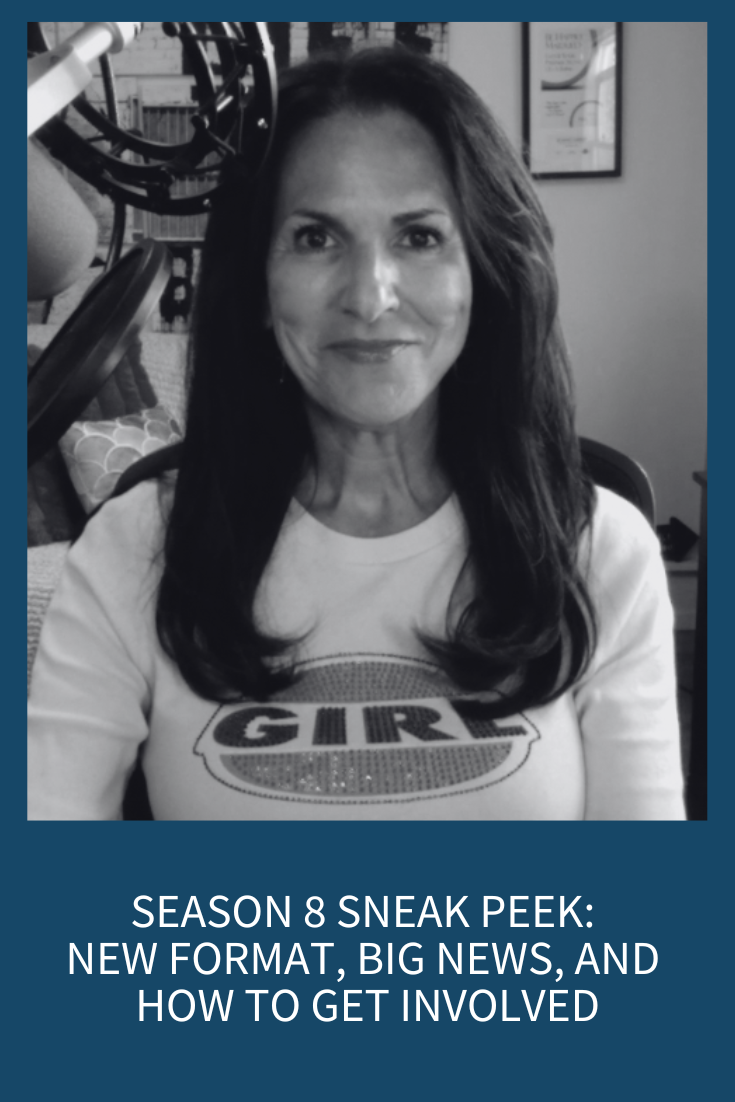
We all want to have connected, happy and fulfilling relationships with the important people in our lives. The problem is that we often feel frustrated, resentful, and annoyed with those very same people! How do we get from irritated to connected? Today I’m teaching you the six habits to make all your relationships successful.
8-minute read
I. Give Your Undivided Attention
It’s especially challenging in today’s world to focus our attention fully on one thing at a time, but it’s the most important skill you can master because there is nothing that makes us feel more cared for, seen, and understood than someone giving us 100% of their attention in a moment. Attention is where you place your mental focus. I’m sure you’ve heard someone say, “Where attention goes, energy flows.” And that’s exactly what happens. When you place your awareness on something specific, you’re making it a priority in that moment; you’re saying it’s important.
If your partner asks you a question, put down your phone (face down) and answer them. If your coworker wants more information about a project you’re working on together, don’t answer them while you’re finishing an email. If your child wants to spend time with you, don’t be at the playground looking at your phone the whole time. Giving something or someone 100% of our focus in a moment is the only way to practice mindfulness. It’s in the distracted moments of your day that you get into arguments, misunderstandings, and misalignment with others.
II. Focus on Unconditional Acceptance
When I meet with couples or family members, it’s generally clear that there’s love. In fact, I would say they often unconditionally love one another. What’s getting in the way of feeling emotionally close and connected is that they don’t unconditionally accept one another. We can know we’re unconditionally loved all day long, but if we don’t feel accepted, we don’t feel loved. You know this is true because you’ve experienced it yourself. There were times during your growing up years (and maybe even now) when you knew deep down that your parents loved you, but you were feeling misunderstood and alone. You knew the love was there on an intellectual level, but you weren’t feeling it on a heart level, so this left you with negative feelings.
I don’t want you to love your partner despite certain things. I want you to love them because of those particular things. I want you to work on embracing the things that bug you instead of “putting up with them.” You’ve got to accept the whole package, not just the parts you deem OK. The same is true for loving your dad, sister, or best friend.
Here’s a newsflash: If you’re feeling resentful, angry, irritated, or frustrated, you’re not accepting something about another person.
To be clear, not accepting certain behaviors is different than not accepting the other person! If you don’t like the fact that your partner is someone who likes to process longer than you do, that’s a problem. The fact that your partner takes longer than you to process is something I do need you to embrace because it’s about honoring the kind of person your partner is.
However, if your partner takes so long to process that they avoid making decisions with you altogether, that’s a behavior you don’t need to accept. This is where I want you to hold a boundary. In this instance, you might say something like, “I know you like to process your decisions longer than I do, and I want to honor that, but I also want to ensure that a decision is made. How much time do you think you’ll need to feel like you’ve thought well on this?”
Your goal is to remain accepting of the person, not an unhealthy behavior.
It’s not wrong to take more (or less) time processing a decision. However, not making decisions at all is unhealthy and a problem. Focus on not judging or criticizing and, instead, asking collaborative questions. In this case, it might be:
- Tell me more about what your worries are around X.
- What other information would you like to know to be able to make a confident decision?
- Is there any way I can support you in getting the information you need or in processing your thoughts?
When others feel consistently judged or not accepted, they stop sharing and taking risks in the relationship. They start to hide things and conceal, and then it’s easy to become me versus you. Stop trying to change the other person. You can change the circumstances of a relationship without changing who they are. Criticizing, picking, sarcasm, and judgment are all part of resisting something and not embracing it.
III. Ask More Than You State
If I’ve said it once, I’ve said it 1000 times: Don’t SAC your relationships. Don’t offer Suggestions, give Advice or Criticize. This boils down to asking more than you state.
Your partner, coworker, or best friend doesn’t need to know all your thoughts about a topic, especially when they haven’t asked for your feedback. We tend to offer advice and direction and say things aloud without really thinking first. Slow down and ask yourself, “Why am I saying this? What’s my endgame here? If you stop to ask yourself that question, you’ll likely not say about 50% of the things you’re thinking, or you’ll say them differently.
Instead, ask collaborative questions meant to brainstorm, facilitate and open up dialogue and connection.
IV. Focus on What You Do Want
The key to any successful relationship is to focus on what you do want, not what you don’t want. I’ll often ask people what their goal is in couples counseling, for example, and they’ll say something like, “I don’t want them to nag me so much.” How is someone supposed to nag you less? Does that mean they can still nag you, but they need to keep track? Only once or twice a day, maybe?
Your brain can’t process in the negative, so thinking about what you don’t want means that’s all you’re thinking about, and there’s no real goal. If you don’t want nagging, what do you want? Compassion, connection, laughter, appreciation? Focus on those things when you enter a situation with anyone, and you’re going to have a very different conversation.
So, if you want your mother to stop nagging you about getting married, steer conversations to what you do want to discuss. My favorite line in these situations is, “Mom, I love you so much, and there are so many things I want to discuss with you, but my being single isn’t one of them.” And then have topics ready to focus on. Bring up that great promotion at work or the fact that you’ve been consistently working out for the last month. Focus on love, connection, and ease instead of frustration, resentment, and annoyance.
Do your best to focus on what’s right, not what’s wrong with any relationship you’re in. There’s a negativity bias we all have, so we’re actually skewed toward looking at our relationships negatively. Focusing on the bright spots helps give you a more realistic view of any relationship while helping you focus on your strengths instead of your weaknesses.
Have you subscribed to my YouTube Channel yet? I’ve got tons of videos full of actionable tips and tools so you can have some quick wins and find more ease, joy, and happiness in your life and in all your relationships!
V. Stop Complaining
I’ve already talked about why we complain and how to stop it, but I want to give you a little reminder here. Complaining, like any other activity, activates the neurons in the brain and trains them to remember the pattern. Every time you complain, you’re teaching your brain to fire the same mental pattern, which creates neural pathways just for complaining about Ted at work or how ungrateful your spouse is. Every time you do something or have a thought repeatedly, you’re wiring your brain. You don’t have a choice about this. What you do have a choice about is what you wire it for.
VI. Focus on Yourself
Focus on what you’re doing, not what the other person is doing. From now on, whenever you start focusing on your partner and what they’re not doing, immediately stop and focus on what you’re doing only. If you find yourself focused on a team member at work and what they’re doing and comparing it to what you’re doing. Stop and focus on yourself.
When you find yourself focusing on others, see it as your canary in a coal mine. It’s your wake-up call to pay attention to yourself. You’re trying to control what others are doing, and you can only control what you’re doing!! I know it sucks to hear that again and again from me, but trying to control others is a path to misery.
Do you know what you can control? Your reactions to your partner. Your thoughts about your coworker. Your feelings about your dad. Yes, all of these are things you can control, so that’s the only place your focus needs to be.
Here’s what I want you to do whenever you notice yourself focusing on another person:
Stop and ask yourself the following questions:
- “What am I feeling right now?”
- “What thought or belief am I having right now that’s making me feel this way?”
- “What else could be true? What’s a better-feeling thought I could have right now?”
- How do I want to feel in this relationship?
- “What’s one thing I could do or think to create that feeling in this relationship?”
Then do that one thing!
No matter what, always remember: Great relationships aren’t built in a day. Great relationships are built daily.
Resources for Six Habits to Make All Your Relationships Successful
Seven Tips for Dealing with Technology in Your Relationships
It’s Not a Time Management Problem, It’s an Attention Management Problem
Stop Phubbing and Start Connecting
Three Steps to Loving Detachment
Make Your Relationships Awesome by Focusing on Bright Spots
Complaining is as Bad for You as Bacon and Just as Satisfying







